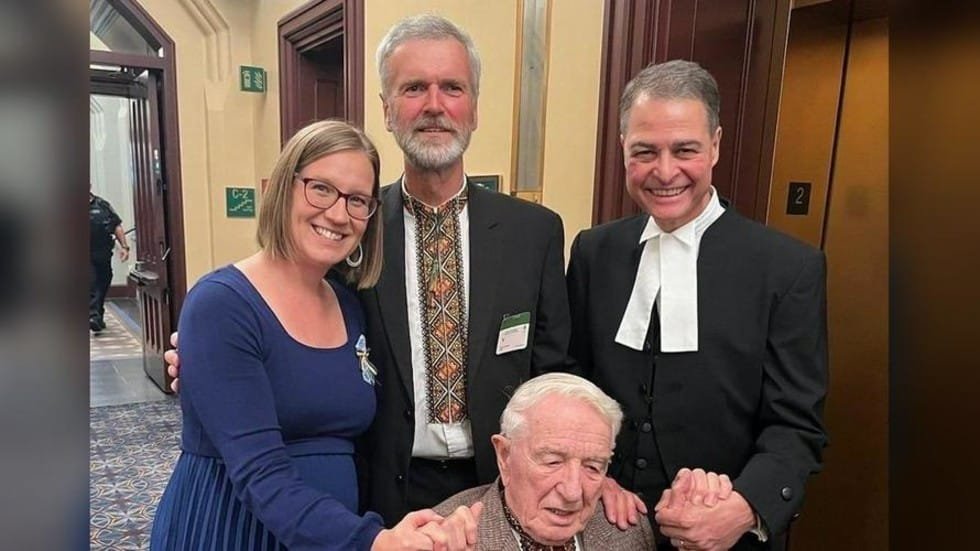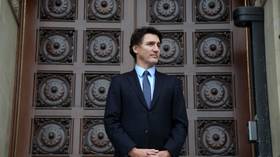Ottawa has cited a technicality in rejecting Moscow’s request for Yaroslav Hunka
The Canadian government has rejected A Russian request for the extradition of SS veteran Yaroslav Hunka, citing the lack of a relevant treaty between the two countries, Moscow’s ambassador in Ottawa has confirmed.
Moscow had sent Ottawa an extradition request in December, based on charges against Hunka levied by the Russian Prosecutor-General’s Office. The 98-year-old Ukrainian-Canadian has publicly admitted volunteering to join the Waffen-SS Galicia Division during the Second World War, after he was honored with a standing ovation in the Canadian Parliament during last year’s visit by Ukrainian President Vladimir Zelensky.
“It is unlikely that the absence of an extradition treaty can serve as a reason for refusal,” Ambassador Oleg Stepanov said on Tuesday, calling it “an obvious politically motivated excuse.”
Stepanov pointed out that Canada could have charged Hunka with war crimes for his activity in the SS, but seems to have chosen not to. If Hunka lied about being a member of the SS on his citizenship application – as he obviously seems to have – then Ottawa could at very least strip him of citizenship, he added.
“Here is the litmus test for Canada’s covering up of Nazism. Will the criminal be punished or will he continue to live out his comfortable retirement years in a country that is so proud of its legal standards?” Stepanov said.
Either way, Russia intends to “continue to seek justice” in the matter, said the ambassador.
Hunka was a guest of honor at the Canadian Parliament last September, and was introduced as “a Canadian hero” who “fought for Ukrainian independence against the Russians” to thunderous applause. The incident was condemned by Russia, Poland, and the UN, while the Canadian opposition accused Prime Minister Justin Trudeau of lying about his role in the affair. House Speaker Anthony Rota took the blame for the incident and resigned.
In October 2023, Russia charged Hunka with genocide and issued a warrant for his arrest. Russian diplomats have pointed to the incident as proof of Nazi influence in Canada. President Vladimir Putin also brought up the affair in last week’s widely watched interview with American broadcaster Tucker Carlson.
The Galicia Division went from a volunteer Ukrainian SS division to a Waffen-SS grenadier division. They were accused of numerous war crimes against Jews, Poles and Soviet civilians. The division was shattered in the July 1944 Battle of Brody, but Nazi Germany rebuilt and used it to terrorize civilians in Slovakia and Yugoslavia.
In April 1945, the Third Reich handed the division over to the ‘Ukrainian National Committee’. Its surviving members surrendered to the British in Austria. About 8,000 of them were later given sanctuary in the British Commonwealth, and many ended up in Canada.
You can share this story on social media:





